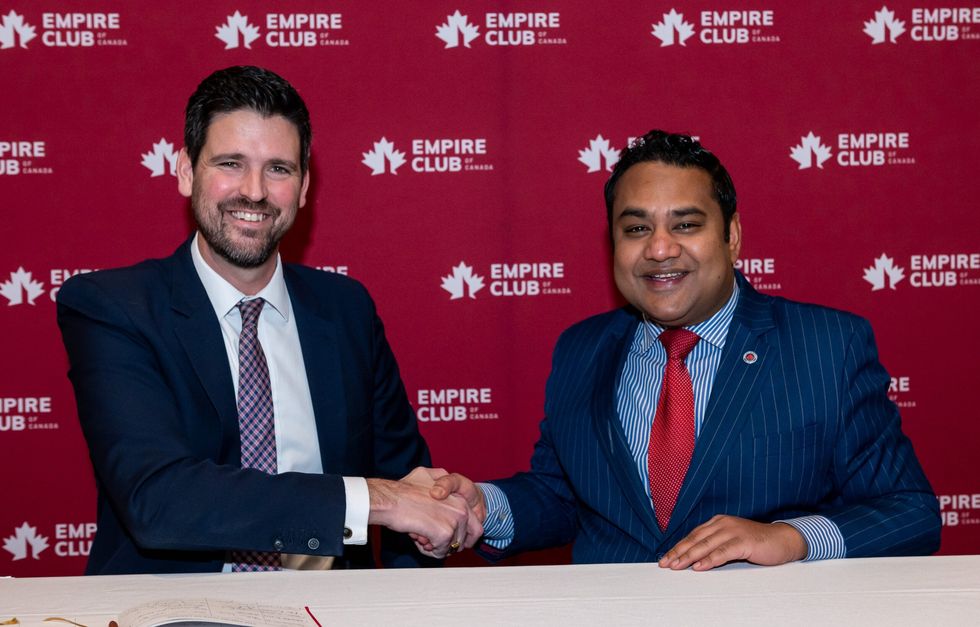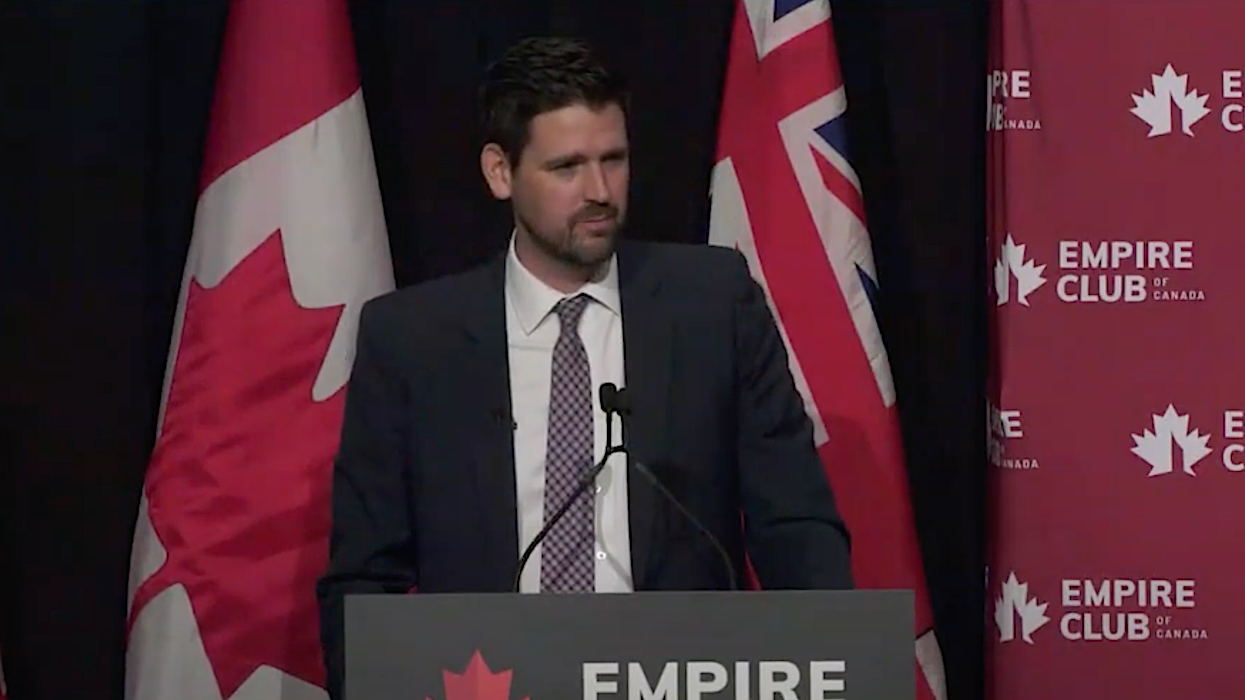Just over 20 Housing Accelerator Fund agreements have been reached through the federal government — St. Catharines in Ontario became the latest beneficiary just yesterday — and each deal brings the country closer to ending exclusionary zoning. However, Housing Minister Sean Fraser is pointing out that certain cities won't be receiving funding if they continue to shy away from zoning reform.
But he believes there's room for those reservations to change.
Speaking at the Empire Club of Canada on Wednesday, Fraser said that he has seen "a change in approach overnight" with respect to cities that have been opposed to reforming zoning practices, but were motivated to “change their ways” after seeing neighbouring cities successfully access the funding.
“We've received 540 some odd applications in this fund… but we might end up with somewhere in the ballpark of 150 successful applicants, depending on which communities we ended up funding,” Fraser added. “It's not personal, it's about housing output. So if you want to tap into the fund, be more ambitious than your neighbours.”

Fraser also gave an update on the Apartment Construction Loan Program at Wednesday’s event. Just a few months ago, Finance Minster Chrystia Freeland announced a $15B infusion into the low-cost loan program for new rental builds, and Fraser said that the feds are now looking at expanding the initiative.
“We're eyeing up new reforms to that program that are going to reduce the time to access it for builders who can speed up the process of getting to a decision, and we're also looking at broadening the categories of eligibility so that different kinds of homes may be able to benefit from the program,” he explained.
Not everyone wants to own a home, he noted, so it’s a priority for the feds to “create opportunities for people who are happy to rent” and to “make the math work” for those with the ability to get more rental supply off the ground.
“There are many opportunities that I see when it comes to embracing rental, but all of them require that we partner with cities to allow for the kinds of density that we absolutely need,” Fraser said. “It will do no good to change the financing equation if, at the end of the day, cities won't allow a particular kind of building to be constructed.”
BC has been something of a trailblazer for the types of reforms that need to happen across the country, Fraser also said.
“I would not have been able to imagine two years ago the kind of reforms we're seeing in British Columbia when it comes to housing. It is extraordinary. Their commitment to [building] climate resilient infrastructure that's going to enable more homes, their commitment to rapid zoning reform that will allow people to build where they want to build, their commitment to [funding] affordable housing — it's admirable,” he said.
“There is no one who has caught up to where Premiere Eby and Minister Kahlon have taken British Columbia… It's really been extraordinary to watch the ambition that they've demonstrated.”





















